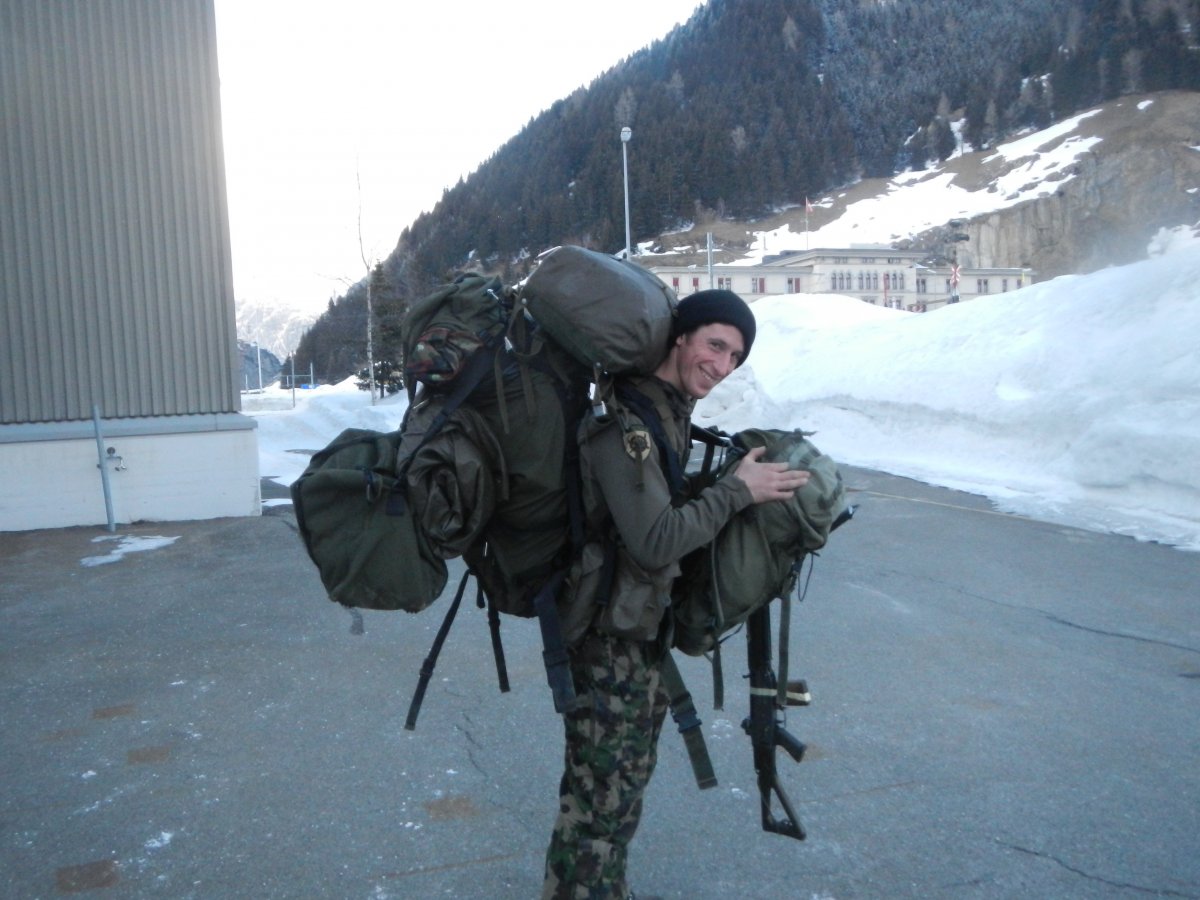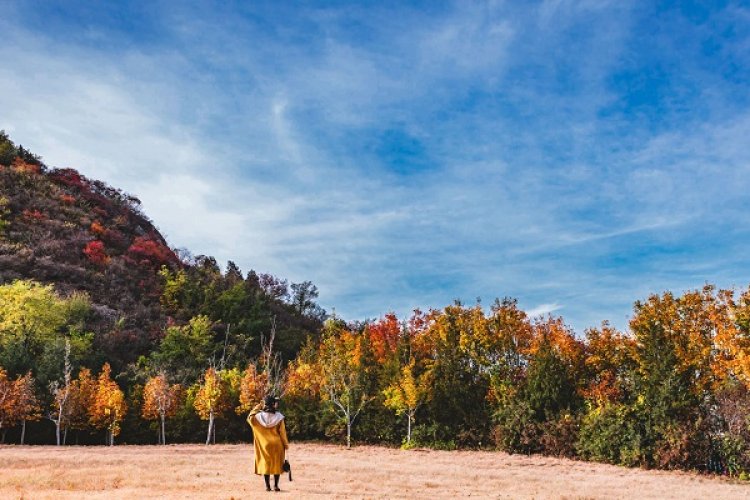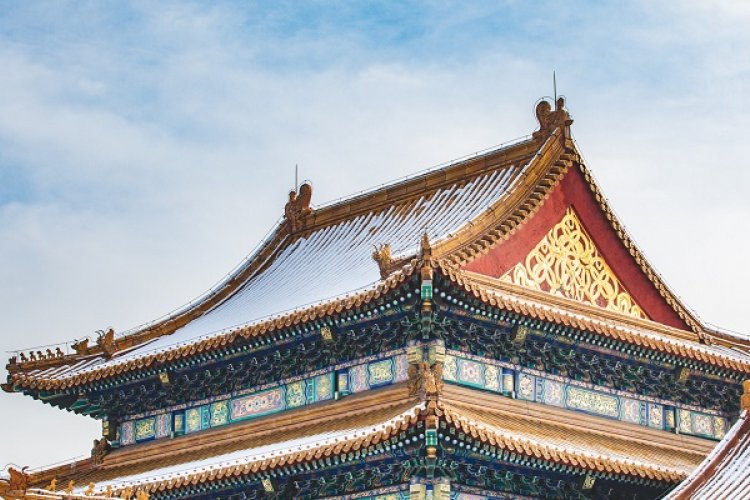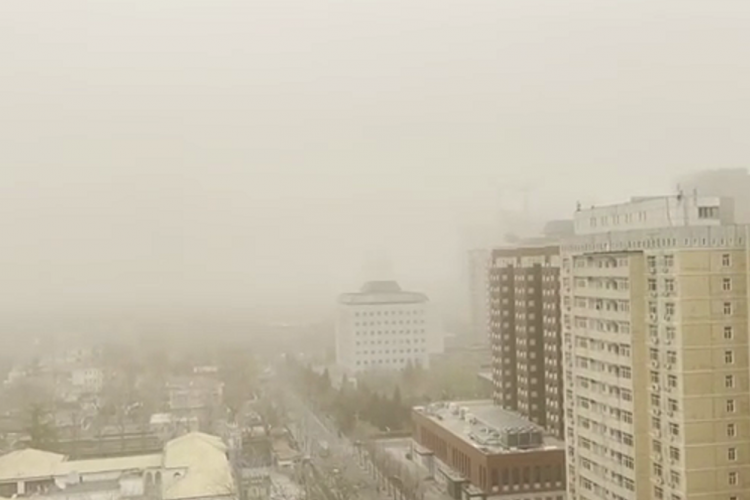Origins: Keep an Eye on this Fast-Growing Beijing Clean Air Startup

This post is sponsored by Origins, a young technology company based in Beijing that develops cutting edge smart devices designed to help people build and sustain a healthy lifestyle.
Liam Bates is as passionate about air quality as he is about China. The Swiss-born founder of Origins, a Beijing-based startup that sells affordable, high quality air purifiers and AQI monitors, dreamed of producing his own kung fu flicks as a child. When he was 15 the self-taught programmer and web designer had already earned enough money from his projects to fund his first trip to China to learn wushu, and he eventually went on to study Chinese and film at the University of British Columbia on a full scholarship – one of only ten students selected out of a field of thousands of applicants.
But rather than simply learning from textbooks and lectures, Bates decided to take a far more intensive approach to his university studies: During his junior year he and a friend embarked on an epic motorcycle trip across China, which they filmed the entire way and made into a documentary called 10,000 Miles.
The editing and post-production process consumed his entire senior year, but Bates’s professors gave him academic credit for his work, and the Dean was impressed enough to ask him to speak at his class’s commencement ceremony.
After graduating Bates moved to Beijing and in 2010 he appeared on Chinese Bridge, a popular program produced by Hunan TV in which foreigners competed in their Chinese language skills. Once again he overcame incredible odds and took first place after making a speech about his cross-country motorbike trip in his flawless Chinese.
Based on his winning speech, Bates was approached by some producers to host a travel program – it was originally to be a one-off deal, but would eventually unfold into a four-year odyssey in which he hosted and produced Chinese-language travel programs about places as far-flung as Switzerland, Malaysia, Indonesia and Canada.

During one of his stints filming in Inner Mongolia, Bates had the opportunity to stay in a traditional yurt and saw how “… these traditional nomads had only one light bulb, but had also managed to hook themselves up with satellite TV using homemade solar panels and wind turbines.” This eco-friendly DIY ingenuity left an indelible impression on Bates. But his decision to devote his work to clean air was spurred by something far more important: his wife.
“Jess and I kept a long-distance relationship after I moved here in 2004 and she was still in Canada,” he explains, adding how she would visit him in Beijing once a year during this time. On one particular visit in 2011 they climbed to the top of Coal Hill in Jingshan Park. “It was a smoggy day, but up until then I had never really thought much of air pollution,” recalls Bates. “She had been freaking out that day, saying her chest hurt and she felt terrible. I kept thinking ‘I guess it’s a bit polluted, but it doesn’t seem that bad.’”
Despite their long-running relationship, making the move to smoggy Beijing was a hard choice for Jessica, who had suffered from asthma as a child. But she eventually agreed, but not before her parents came to check out the city for themselves and ensure that their air quality was safe enough for their daughter. “Jess’s parents are from Hong Kong and they had heard many horror stories about Beijing’s smog,” he explains. “I took them to several slick shopping centers to show them how modern the city is and they spotted air purifiers in one of the electronics shops and told me this was exactly what I needed to buy for Jess.”
Bates understood the necessity of buying a good quality purifier, but was put off by the high prices: the models they checked out were over RMB 10,000. That same evening he attended a friend’s birthday party and struck up a conversation with two other guests, who just happened to work at Smart Air, another Beijing-based company that became famous for making affordable air filters.

The events of that day prompted Bates to buy an air particle monitor, a fateful purchase that would change the course of his entire career. “I used the monitor on every purifier to test every fan and filter I could find, because I’m geeky,” he says with a grin, adding that the results of that little experiment made him glower at the time. “What I came to realize was that there are a lot of air purifying products out there that are not designed for Beijing.”
Bates says his biggest revelation came while reading the lab certifications for one of these products at a store. After squinting at the small print, he saw that many top-of-the-line purifiers are tested by burning something small in a sealed box measuring just a cubic meter and the purifier is graded on how well it rids that tiny space of low quality air. “I started looking at the ads that claim to remove ’99.9% of pm 2.5 in an hour,’ and thinking ‘well, of course it does, in those conditions,” he says.
Such controlled conditions are virtually impossible for Beijing’s notoriously drafty apartments. “The sheer amount of pollution seeping in through the gaps around poorly insulated windows and doors is often higher than the clean air coming out of your air purifier,” explains Bates. “And even if your device is a high-grade model that costs RMB 6,000 or more, it might still not be enough for those ‘airpocalyptic’ days.”
Sensing opportunity, Bates decided to explore further. He reached out to his dear friend, Ken Ying Wen Xiang – the same friend with whom he biked across China years earlier. “Ken was working in Shanghai representing one of Germany’s biggest steel trading companies at Chinese factories, so I asked him to partner up in a new venture creating high quality air purifiers specifically tailored for Beijing.”
Bates searched online and found one of the world’s top manufacturers of air purifier filters – Snowline, based in his own native Switzerland – and together with Wen commissioned them to make filters. “We tested the filters they made both inside and outside of Beijing apartments and sent the results back to Switzerland,” he says, adding how this was a far more accurate approach than the lab tests with air purifiers in sealed boxes.

Bit by bit Snowline made adjustments to the filters and eventually produced a model to everyone’s satisfaction. Bates explains that as a result of this extensive testing, the Snowline filter lets more air through, which lets more air get recycled than other models, which are often too tight. “It also makes our purifier quieter,” adds Bates. “Think of it as the difference between putting a piece of paper over a fan, which would be very loud, and putting a mesh over it.”
By the spring of 2014 – just a few months after Jess’ parents raised their concerns during their visit – Liam, Jess and Ken had a working prototype of the purifier ready. They dubbed it the Oxybox and sold their first units in June.
A few months later they entered a Chaoyang government-run contest for startups called Phoenix, a Dragon’s Den-style competition for local entrepreneurs to pitch their products to judges for a grand prize of RMB 100,000. Once again, Bates emerged victorious – Origins was awarded the money and corporate clients soon came calling, including the Swiss Tourism Office, several embassies and Keystone Academy, which now uses Oxybox Purifiers throughout its campus.
Today Origins is aiming to expand the sales of its Oxybox model to other Asian markets, and is also developing an even more ambitious air quality monitoring device called the Laser Egg, which is slated to launch next month along with an accompanying mobile app. “I believe in moving fast,” says Bates of his company’s impressive rate growth. Given all that he’s accomplished so far, you can expect big things from this dynamic Beijing startup.
Photos courtesy of Origins, Uni You







